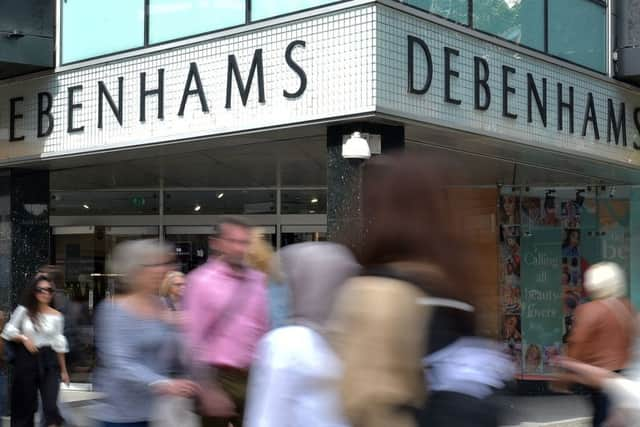Why it’s high time for shops to open all hours on Sundays – David Behrens


Before that, you could buy a bidet at B&Q on a Sunday but not a bible at Waterstones. It was an anomaly lost on the Lord’s Day Observance Society.
Meadowhall, the glass-domed cathedral to consumerism in Sheffield that was bigger than anything the region had seen, had been opened four years earlier, with the expectation that Sunday trading would soon be the norm. But for its honeymoon period, its shopkeepers had to watch from behind shuttered doors as visitors arrived, window-shopped and then left. Some came in just to keep dry, because in the absence of retail therapy, keeping dry was what passed for entertainment.
Advertisement
Hide AdAdvertisement
Hide AdThe 1994 law which changed all that was, some thought, the thin end of the wedge. Not being able to go shopping on the sabbath had been a badge of our nation’s Christian values, or at least a hedge against our collective retreat from religion.


In truth, the Sunday flock had been declining for decades. Today in Britain, there may well be more worshippers at mosques than in churches. Yet, despite the battle appearing to have been won, Sunday trading is once more a political hot potato. Not because we have it, but because we don’t have enough of it.
No-one had foreseen in 1994 the threat to the high street that would come from shopping itself – the proliferation of online stores which never closed. Their presence in every home has made the six-hour window in which bricks-and-mortar retailers are allowed to operate on Sundays something of an anachronism.
Advertisement
Hide AdAdvertisement
Hide AdThree years ago, when Parliament last debated the issue, at the behest of David Cameron, the threats of hell and damnation from religious types, which dominated the agenda in the 1990s, had been largely silenced. That ship had sailed long since.


The opposition came instead from Cameron’s rebel Conservatives, in a portent of what was to follow at the Brexit referendum, three months later. A second rebellion by Scottish MPs made even less sense, since the Scots had already relaxed their own rules.
Cameron’s proposals would have devolved to local councils the decision on how long to let shops open on Sundays. It was not a question of jobs versus Jesuits, the Government argued. The economy would benefit to the tune of £1.5bn over 10 years.
Advertisement
Hide AdAdvertisement
Hide AdIt was a back-of-a-fag packet calculation but it made more sense than any of the arguments against it. The service economy that underpins today’s Britain depends on letting as many customers through the doors, for as many hours as possible. The coming of Sunday trading helped to build this commercial architecture, and we were all complicit in its making.
Shops are Britain’s biggest private sector employers; nearly thee million people work in one. That alone is reason enough to do everything we can to protect them for another generation. It is, incidentally, another factor which appears to have been overlooked in 1994, when the shop unions were almost as vocal as the Observance Society in their opposition to change. Even Marks & Spencer was against it – although its stores were among the first to open that August.
Then, as now, opposition to extending Sunday hours was founded on the principle that shopping was somehow bad; that it steered the county’s moral compass away from more wholesome pursuits.
That’s one way of looking at it.
Another is to acknowledge and even celebrate the role in society that the high street has assumed. It is for many the centre of community life, the place where Britain congregates – not just to shop but to socialise. High streets may not be the Roman road to salvation but neither are they the road to ruin.
Advertisement
Hide AdAdvertisement
Hide AdAnd it’s not as if anyone hankers for the Sundays that had gone before – days of enforced leisure punctuated by boiling the cabbage and listening to Sing Something Simple. Sunday boredom had been a British trope since the 50s, when Tony Hancock famously sent it up. Stone me, what a life!
We got something right when we let the shops open on Sundays. But the compromise of short opening hours has served it purpose. It would be a service to our high streets and to the communities who depend on them to finish what we started back in 1994.